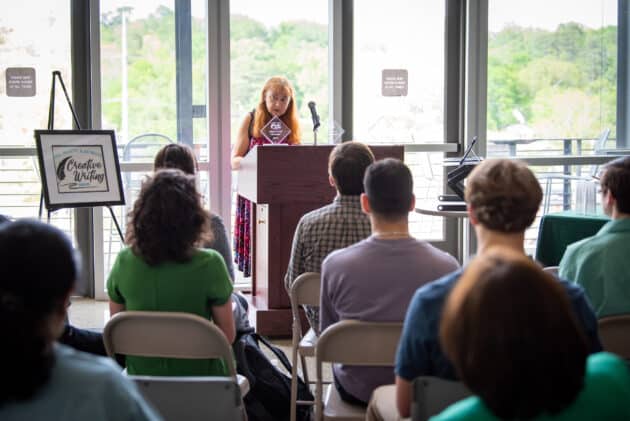By Dr. Paulette Mehta
Transcript of speech presented at Mehta Creative Writing Awards Ceremony and Reception, April 2023.
Thank you to Dr Stephanie Gardner for your kind words and Dr. Hester for organizing this celebration of creative writing. Thank you also to the winners of this award who will be honored and who will read part or all of their work today.
You, the winners of the award and others healthcare workers who write, follow a long and honorable tradition. In fact, some of the most famous writers of all time have been doctors perhaps because they (we) are present at the most intimate moments of life, from the moment of birth to the moment of death and everything in between. These distinguished writers include Anton Chekhov, the Russian physician who wrote some of the most famous short stories including Uncle Vanya; Sir Arthur Conan Doyle, the Scottish physician who wrote Sherlock Holmes; and Michael Creighton, who wrote Jurassic Park. They also include Oliver Sacks, the neurologist who wrote The Man Who Mistook His Wife for a Hat, Anthropologist on Mars, Awakenings, and many other amazing stories from his neurology practice. This list goes on and on to include some of the most illustrious authors.

Why do healthcare professionals write when they already have so much to do? And what makes them so good at writing?
I believe there are as many reasons for doing so as there are healers who write. First, they write to make sense of and to honor their experiences. We are privy to the most intimate and the most catastrophic of a person’s life events and writing puts it in a perspective that enables us to cope with our inner reactions and emotions. It also allows us to share our experiences and to teach others about what we’re experiencing, whether others be our patients and families, our colleagues, our students, our friends.
Increasingly doctors and other healthcare workers are being trained to write their experiences as a way to build resilience and protect against burnout, stress, depression, and ultimately even deaths of desperation.
Storytelling and story listening are the essence of a healer’s life. Patients come to us with bodies to heal but also with stories to tell. Their stories need to be heard, understood, and addressed. Their stories extend to their families, their community, and us. When we listen well; when we accept their story with honor, humility, and humanity; and when we help to resolve their stories – our patients do better.
This is what I believe. This is what Jay believes.
Because we believe this so strongly, we developed this Mehta Creative Writing Award which will continue indefinitely here at UAMS as one aspect of a growing arts-in-medicine cultural renaissance.
We are grateful for the leaders at UAMS including Dr. Gardner and others who have made this program possible. We are grateful to everyone who submitted stories for this competition. And we congratulate the winners of the award.
Today we will hear portions of their stories and take time to listen and honor them.
But that’s not all.
Although we will only hear portions of most of their stories today, we will publish all of their stories – in their entirety — in the summer edition of Medicine and Meaning, the literary journal of the University of Arkansas for Medical Sciences. Make sure to read these stories when they come out very soon.
In the meantime, let’s listen to our winners’ stories.
Paulette Mehta, M.D., MPH, is professor emerita in internal medicine and hematology oncology at the University of Arkansas for Medical Sciences. She is editor in chief of Medicine and Meaning and has published many poems and short stories relating to her practice.
